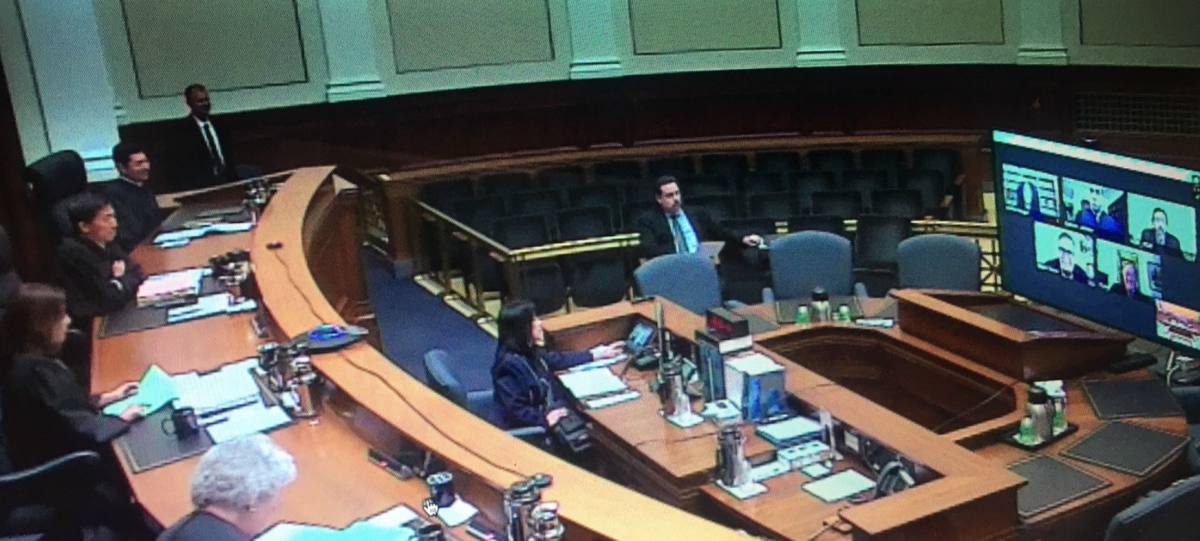For the first time ever, California Supreme Court hears arguments remotely due to coronavirus

SAN FRANCISCO — For the first time ever, the California Supreme Court on Tuesday held oral argument remotely, with three of the seven justices and all of the lawyers participating by video link due to the state’s coronavirus lockdown.
The San Francisco courtroom was empty except for four justices spaced six feet apart on the dais, a few staff members and the California Highway Patrol, which provided security.
For the most part, the unprecedented hearing appeared to work.
The justices in the courtroom watched a large screen displaying video of the other participants. Those outside the courtroom saw the lawyers and three justices in seven separate rectangles on the computer screen. Some of the remote participants appeared to be at home. Others were in offices. The justices at home wore their black robes. The lawyers dressed professionally.
Chief Justice Tani Cantil-Sakauye noted there had been a “dry run” to ensure the system would work.
There were glitches, though. At times, Cantil-Sakauye sounded as though she were speaking under water. A lawyer participating remotely had the bottom part of his face cut off during the first case.
The court had previously announced that Justice Joshua P. Groban, who lives in Los Angeles, and Justice Ming W. Chin, who is 77, would participate remotely. Justice Leondra R. Krueger, who lives in the East Bay and has young children, joined them remotely for the hearing. The court was hearing a consumer rights case out of Orange County. The Orange County district attorney sued a handful of drug companies for allegedly trying to block the manufacture of a low-cost generic version of a cholesterol drug. The suit accused the companies of having an illegal “pay-for-delay” pact to keep a generic version of the drug Niaspan off the market.
The law authorizes district attorneys, city attorneys and county counsels to bring such suits, obtain statewide injunctions against illegal practices and obtain penalties and legal settlements.
But before the case was tried, the companies won a ruling in a state court of appeal declaring that monetary damages could be obtained only for the residents in the county that brought suit, not statewide.
That decision, if upheld, would slash the amount of money counties could recover and likely lead to fewer county lawsuits.
The Supreme Court appeared likely Tuesday to overturn the court of appeal decision.
More to Read
Sign up for Essential California
The most important California stories and recommendations in your inbox every morning.
You may occasionally receive promotional content from the Los Angeles Times.











